The HR Leader’s Secret Weapon: Why Active Listening is Essential
HR leaders today are navigating an environment that’s more complex than ever. Between shifting workplace policies, economic fluctuations, and ongoing discussions about diversity, equity, and inclusion (DEI), HR teams are often the first to handle the toughest conversations. So, how can HR professionals manage the increasing demands of their roles while still making meaningful connections with employees?
The answer isn’t more policies, faster responses, or even better technology—though those all help. The real game-changer is active listening.
Active listening isn’t just about hearing what someone says; it’s about understanding, processing, and responding in a way that builds trust, defuses tension, and creates stronger workplace relationships. At Mosaic Consulting Group, we’ve seen firsthand how mastering this skill can transform the way HR teams lead. Here’s why it’s one of the most valuable tools an HR leader can have.
1. The Key to Stronger Relationships: Stop, Listen, Understand
Have you ever walked away from a conversation feeling like the other person was just waiting for their turn to talk? It’s frustrating. Employees feel the same way when their concerns are met with rehearsed responses or half-hearted nods.
Active listening isn’t about waiting for your turn to speak—it’s about fully engaging with the other person’s perspective. That means:
- Making eye contact (even over Zoom).
- Eliminating distractions (put the phone down!).
- Summarizing what was said before responding.
When employees feel truly heard, they become more engaged, loyal, and motivated. Studies have shown that organizations with high employee engagement see a 23% increase in profitability. Listening is more than just a soft skill—it’s a competitive advantage.
HR Insight: “I remind myself to shut my mouth and listen—not just hear. When I listen, I learn. And when I learn, I can help others. That’s how you build real connections.”
2. Listening is Leadership: Showing That You Care
HR professionals are often the ones delivering tough messages—layoffs, policy changes, or denied requests. But even when an answer is no, employees still want to feel like their perspective matters.
Think about a time when you received disappointing news. Did it feel different when the person delivering it genuinely acknowledged your frustration or concerns? Acknowledgment doesn’t mean agreement—but it does mean respect.
Example: An employee requests a flexible work schedule, but the company policy doesn’t allow it. Instead of shutting them down with “That’s not possible,” an active listener might say:
“I understand why a more flexible schedule would be helpful for you. Right now, company policy doesn’t allow that change, but I’d love to keep the conversation open and explore alternative ways to support you. What’s most important for you in terms of flexibility?”
Even when policies can’t change, people appreciate being heard.
HR Insight: “When leaders listen first, they create workplaces where people feel valued. And when employees feel valued, they give their best.”
3. Conflict Happens—Listening Prevents Escalation
Misunderstandings are a leading cause of workplace conflict. How many times have you heard someone say, “That’s not what I meant!” after an argument?
Active listening prevents minor miscommunications from turning into bigger problems. When HR leaders encourage employees to listen with curiosity instead of assumption, conflicts become discussions rather than battles.
Example: Two employees disagree on a project direction. Instead of letting the situation escalate, an HR leader trained in active listening might ask:
“Can you both take turns summarizing each other’s viewpoints before responding? Let’s make sure we fully understand each perspective before moving forward.”
When people feel heard, they’re more open to collaboration. HR’s role isn’t just to mediate—it’s to create a culture where understanding comes first.
HR Insight: “I once saw a workplace disagreement completely dissolve the moment one employee realized they had misunderstood the other’s intention. A simple ‘Oh, that’s not what I thought you meant’ changed everything.”
4. Active Listening Creates Stronger Teams
One of the biggest benefits of active listening? It fosters innovation.
When employees feel comfortable sharing ideas without judgment, they bring forward more creative solutions. Some of the best business innovations come from employees who feel safe enough to speak up.
Example: A company was struggling with an inefficient 157-step internal process. After two days of active listening workshops, employees streamlined it to just 45 steps. The leadership team didn’t drive the change—employees did, because they finally had a platform to voice their insights.
By encouraging open dialogue, HR leaders create workplaces where people feel confident contributing their best ideas.
HR Insight: “I once worked with a CEO who was an intense but brilliant listener. He didn’t always take my suggestions, but I always knew he truly considered them. That made me work harder because I felt valued.”
It’s Time to Listen Up
Active listening isn’t just a skill—it’s a strategy. In a world where HR teams are being pulled in a hundred different directions, the ability to slow down, focus, and truly listen can be the difference between a disengaged workforce and a thriving one.
At Mosaic Consulting Group, we help HR leaders implement strategies that go beyond policies and paperwork. We focus on people—because when employees feel heard, businesses succeed.
HR Support That Listens: Mosaic Consulting Group
Active listening is just one part of building a strong workforce. If your HR team needs expert support, Mosaic Consulting Group is here to help.
Through our HR Outsourcing Services, we provide dedicated HR consultants who handle everything from employee relations to benefits administration—so your team can focus on strategy instead of stress.
Our Services Include:
- HR Operations – Managing personnel changes, compensation, and approvals.
- Benefits Administration – Helping employees navigate benefits effectively.
- Talent Acquisition – Attracting top talent across generations.
- Employee Relations – Fostering a positive and compliant workplace culture.
- Learning & Development – Implementing effective training programs.
- HR Strategy & Compliance – Ensuring your organization is ready for the future.
HR teams are balancing more than ever—let Mosaic help you focus on what matters most.
Ready to build a workplace where employees feel heard and valued? Contact Mosaic Consulting Group today!




